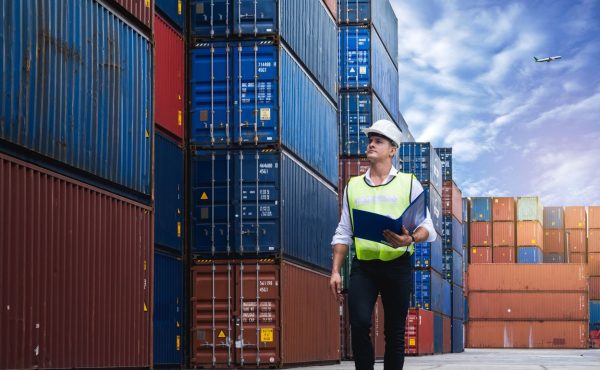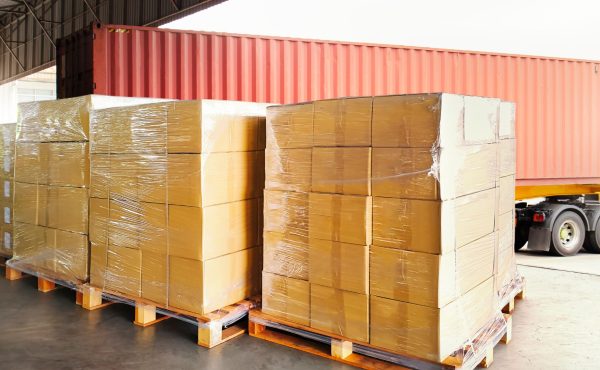Incoterms 2010, what they are and what they are for
When were the 2010 Incoterms created?
The origin of the current Incoterms 2010 dates back to 1936 when the International Chamber of Commerce (ICC), based in Paris, published the first version of the Incoterms (INternational COmmercial TERMS). The intention of the ICC was to define international negotiation guidelines that could be used throughout the world and between countries with different regulations applied to their foreign trade.
Periodically, and at intervals of about ten years since 1980, ICC has published new editions of the Incoterms to update these terms of sale and adapt them to the development of international trade and to the most common practices in import and export operations worldwide.
“The 2010 Incoterms published by the ICC since 1936 regulate the relations between sellers and buyers in a sales transaction”
The latest edition is the Incoterms 2010, published that year and which replaces the previous ones published in 2000. The International Chamber of Commerce in Spain has a Spanish version of the Incoterms 2010.
The Incoterms 2010 are in force since January 1st, 2011. The draft incorporates various amendments and modifications, especially related to the logistics chain of international trade operations.
What are Incoterms for?
The purpose of Incoterms is to define the obligations and responsibilities to which an exporter/seller and an importer/buyer are subject in a foreign trade operation.
Since it is an international rule applied to a transaction, it is essential that in the sales contract the parties indicate that they accept and are bound by the conditions established by the 2010 Incoterms.
“As an expert freight forwarder in transport and international trade, Logisber can advise you on which Incoterm 2010 is best to use in a sales transaction”
Due to its relevance in foreign trade, all actors involved in a chain of purchase and sale of a good (exporter, importer, carrier, freight forwarder, customs broker, bank and insurance company, among others), must know in depth the Incoterms and use them correctly to avoid discrepancies between the parties.
As an expert freight forwarder in transport and international trade, Logisber can advise you on which Incoterm 2010 is best to use in a purchase-sale operation.
The main functions of Incoterms are to precisely define several important aspects of a transaction, such as the place of delivery of the goods by the seller, who contracts and pays for the transport and international insurance, which documents are processed by each party, who bears the costs of the different sections of the logistics chain, and when and where the transfer of risk on the goods from the seller to the buyer occurs.
“All actors involved in the international logistic chain must correctly use the 2010 Incoterms to avoid discrepancies between the parties”
Incoterms 2010, 11 terms of sale
In addition to the International Chamber of Commerce, other organizations such as the Spanish Institute of Commerce (ICEX) offer companies practical information on Incoterms 2010.
The Incoterms 2010 set out 11 international sales terms distributed in four categories: E, F, C and D. In each of these groups, the place of delivery of the goods and who is responsible for payment of international transport is precisely defined.
Likewise, the 2010 Incoterms can be grouped into two large classes depending on the mode of transport:
Incoterms for any mode of transport or also known as multimodal or multipurpose: EXW, FCA, CPT, CIP, DAP, DAT and DDP.
Incoterms for Sea and Inland Waterway Transport Only: FAS, FOB, CFR and CIF
“The 2010 Incoterms establish 11 international sales terms that are grouped into four categories: E, F, C and D”
Incoterms 2010 – Group E
EXW – Ex Works/Franco Fabrico, seller’s address.
The seller is only responsible for making the goods available at his premises.
The buyer assumes all costs and risks inherent in the transport, from the departure of the seller’s facilities to the final destination.
Incoterms 2010 – Group F
The seller is responsible for preparing the goods and taking them to the means of transport determined by the buyer.
The buyer assumes the costs, including international transport to the final destination.
FCA – Free Carrier, agreed upon point of delivery.
The seller loads the goods onto the vehicle and takes care of the inland transport to the agreed place (port, airport, etc.) and the customs formalities in the country of departure.
The buyer takes care of international transport (sea, air, rail, truck), insurance and customs formalities until the final destination.
FAS – Free Alongside Ship/Franco al lado del buque, agreed port of shipment.
The seller loads the goods and arranges for transport to the location of the goods on the side of the ship or loading bay at the named port of shipment and carries out the customs exit formalities.
The buyer assumes the cost generated in the port terminal of departure and deals with the international maritime transport and all operations and formalities until final destination.
FOB – Free On Board, port of departure.
The seller loads the goods and takes care of the transport until the goods are placed alongside the ship or loading dock at the agreed-upon port of shipment, of the customs exit formalities and assumes the cost generated at the port terminal of departure.
The buyer takes care of the international maritime transport and all the operations and formalities until the final destination.
“The Incoterms FAS, FOB, CFR and CIF are exclusive to maritime transport, while the terms EXW, FCA, CPT, CIP, DAP, DAT and DDP apply to any mode of transport”
Incoterms 2010 – Group C. The seller shall bear all costs incurred up to the point where the goods are unloaded in the country of arrival after international transport.
The buyer will take care of the operations and costs from the unloading of the goods at the point of arrival to the final destination.
CPT – Carriage Paid To.
The seller takes care of the operations and costs until the arrival of the goods at the point of unloading in the country of destination, but does not contract the insurance of international transport.
The buyer takes care of the insurance of the international transport and of the operations and costs until final destination, including the costs of unloading the goods in the terminal (port, airport, railroad) of the country of arrival.
CFR – Cost And Freight/Coste y Flete, port of arrival.
The seller takes care of the operations and costs until the arrival of the goods at the port of discharge in the country of destination, but does not contract the insurance of international transport.
The buyer takes care of the insurance of the international transport and of the operations and costs until final destination, including the costs of unloading the goods in the port terminal of the country of arrival.
CIP – Carriage and Insurance Paid To/Transportation and Insurance Paid To destination.
The seller takes care of the operations and costs until the arrival of the goods at the point of unloading in the country of destination and contracts the insurance of international transport.
The buyer takes care of the operations and costs until the final destination, including the costs of unloading the goods at the terminal (port, airport, railway) in the country of arrival.
CIF – Cost Insurance And Freight/Coste, Seguro y Flete, puerto de llegada
The seller takes care of the operations and costs until the arrival of the goods at the port of discharge in the country of destination and contracts for the insurance of international transport.
The buyer takes care of the operations and costs until the final destination, including the costs of unloading the goods at the port terminal in the country of arrival.
“At Logisber we are Authorized Economic Operators (AEO) and we manage the entire logistics chain of your goods in any export or import operation”
Incoterms 2010 – Group D. The seller bears all risks and costs until the goods arrive at the country of destination, including costs at the terminal (port, airport, rail, TIR) of discharge.
The seller bears all risks and costs necessary to bring the goods to their final destination.
DAT – Delivered At Terminal/Delivered at Arrival Terminal.
The seller takes care of the entire logistics chain, including international transport and insurance, and assumes the costs generated in the discharge of the goods at the terminal (port, airport, rail, TIR) of the country of arrival.
The buyer takes care of the customs formalities in the country of arrival, the inland transport in the country of arrival and the unloading of the goods at the buyer’s address.
DAP – Delivered At Place.
The seller takes care of the whole logistic chain, including international transport and insurance, and assumes the costs generated by the unloading of the goods at the terminal (port, airport, railway, TIR) of the country of arrival. He also takes care of the inland transport in the country of arrival, unless the goods are delivered to a place outside the country of arrival.
The buyer is responsible for customs formalities in the country of arrival and for unloading the goods at the final destination or the buyer’s address.
DDP – Delivered Duty Paid/Delivered Duty Paid place Agreed place of destination.
The seller takes care of the entire logistics chain, including international transport and insurance, and assumes the costs generated in the unloading of the goods at the terminal (port, airport, rail, TIR) in the country of arrival. He also takes care of the customs formalities in the country of arrival and the inland transport in the country of arrival.
The buyer is only responsible for the unloading of the goods at the final destination or domicile of the buyer and for the licences or certificates required by the agencies of the country of arrival.
Incoterms 2010, being international sales terms that establish responsibilities, obligations and cost sharing between seller and exporter, are also important for banks. For this reason, the Santander Trade Portal or Banco de Sabadell also offer detailed information on how the Incoterms 2010 are applied.
At Logisber we are Authorized Economic Operators (AEO) and we manage the entire logistics chain of your goods in any export or import operation.

Categorías
Customs and regulations, International Trade
Compartir









